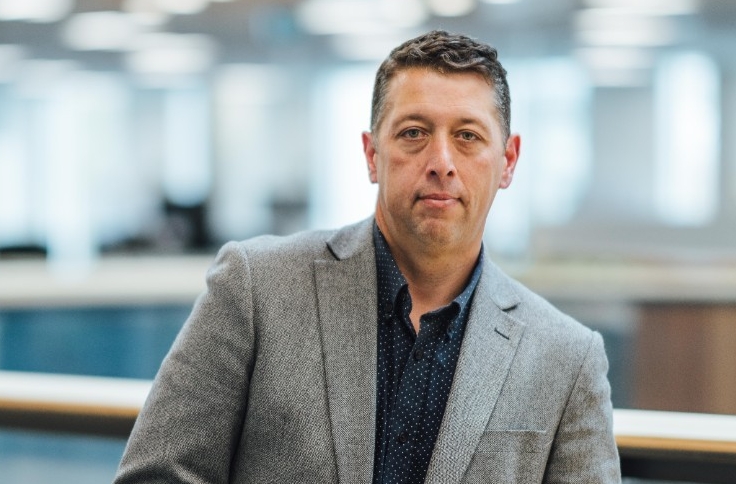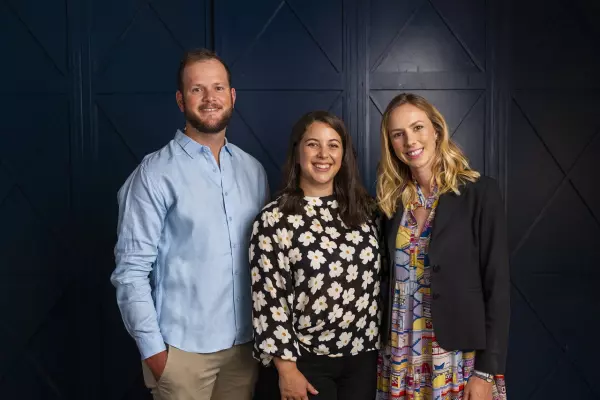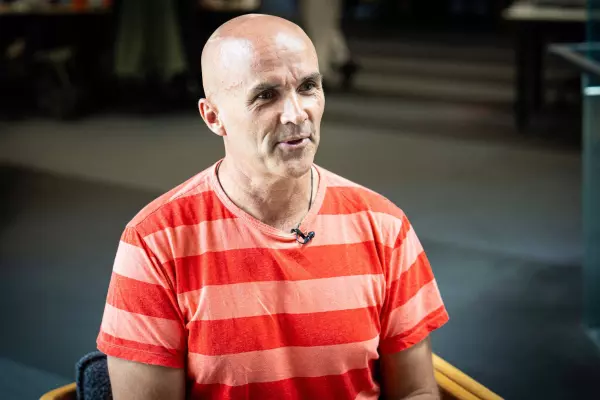Rhind Mulitalo was into sports growing up, but computers and video games were his passion.
“I was always outside playing around, but my older brother was quite into computers and gaming in general, so that brushed off on me.”
His parents had many game consoles and from the age of 11, he was the household tech expert.
“There was always technology around me … I became the go-to troubleshooter of the family.”
But it never seemed to him like technology could be his career. Architecture and law were in the pipeline for higher education, and his keen interest in technology was considered a hobby.
“It was just something I did for fun: building computers and playing with computers.”
But he easily passed a course on the functionality and components of computers in his last year of high school and, thanks to existing knowledge, it meant an opportunity for a course at Auckland’s Techtorium - an IT school run by the New Zealand Institute of Information Technology (NZIIT).
Undertaking two courses at Tectorium meant a career in tech didn’t feel so outlandish anymore.
23-year-old Māori Samoan Mulitalo said this is where he fell in love with software development, but after a two-year course, he found himself on the jobseeker benefit as covid-19 narrowed job opportunities in NZ.
Then early in 2021, he got a call from his employment case manager who had got him an interview for a 12-week Amazon Web Services (AWS) course.
AWS’s re/Start cloud computing courses train people in 38 countries to give them certification in AWS cloud services and help prepare them for work.
Tim Dacombe-Bird, country manager of public sector at AWS NZ, said the program is designed to offer technological skills, development, and job opportunities to people who may have never considered a career in tech.
“Cloud and technology skills are in extremely high demand, and it is our mission to help organisations meet their hiring needs for qualified, skilled professionals while also empowering local citizens to pursue a future in technology.”
All courses are free, funded by MBIE and the Tertiary Education Commission. Unitec, an Auckland subsidiary of Te Pūkenga which was previously known as the NZ Institute of Skills and Technology, runs the courses and connects participants to employers.
“Cloud and technology skills are in extremely high demand, and it is our mission to help organisations meet their hiring needs for qualified, skilled professionals while also empowering local citizens to pursue a future in technology,” said Dacombe-Bird.
Collaboration
Locally, AWS recently pledged to pump $7.5 billion into growing its Aotearoa operations. Its NZ re/Start course is one of the few that guarantees all successful entrants an internship at top local tech organisations such as Datacom, Spark Business Group, Auckland Council, The Instillery and Pushpay.
“New Zealand's a great place to live and it's easy to attract technology talent from around the world to come here, and I think that covid reminded us that actually, we have this important responsibility to build talent,” Datacom NZ's managing director, Justin Gray told BusinessDesk.
He said the company, which is NZ’s largest tech firm, is involved in several internal and external training programs. This includes TupuToa, an internship incentive designed to grow Māori and Pacific representation in leadership roles in the corporate sector.
 Justin Gray heads up Datacom in NZ. (Image: supplied)
Justin Gray heads up Datacom in NZ. (Image: supplied)AWS re/Start focuses on giving places and opportunities to those communities too.
“We're basically trying to say yes to every opportunity we can to train people,” Gray said.
A recent report, Digital Skills Aotearoa: Digital Skills for our Digital Future, found only 4% of NZ’s IT workforce is Māori, and only 2.8% Pacific people.
Mulitalo was one of six re/Start interns at Datacom in the first cohort in May. All six were out of work due to covid and ended their course having been offered full-time roles at the company.
“Nothing was guaranteed,” Mulitalo said. “So, I was just trying my best to prove myself and stand out.
“Just the certificate that came with the course was enough for me. The internship was definitely an added bonus for me, and then the role along with that.”
He’s now an associate site reliability engineer helping AWS customers of Datacom set up their cloud environments.
Though Datacom does not have a diversity quota or target for hiring, Gray said it actively pursues a policy of inclusivity.
“Having people from Māori and Pacific backgrounds who can find a pathway to Datacom is really important.
“We are providing workplaces that are ready so that people from those backgrounds feel safe and feel like they don't have to leave their culture at the door.”
Datacom has hired 500 people since April 1 and is also pushing to retrain existing staff in other areas to help them switch specialties. A shortage of skills since the pandemic had driven the need for training in all areas.
“We're almost forced to do it, frankly. And that's not a bad thing. But I think it's a matter of we’re embracing it.”
A new contingent of people is undertaking a second wave of re/Start courses in Auckland and Christchurch, with 10 organisations taking them on as interns, including Vector, Nextgen Group, and WayBeyond.
This story has been updated to correct a factual error.















